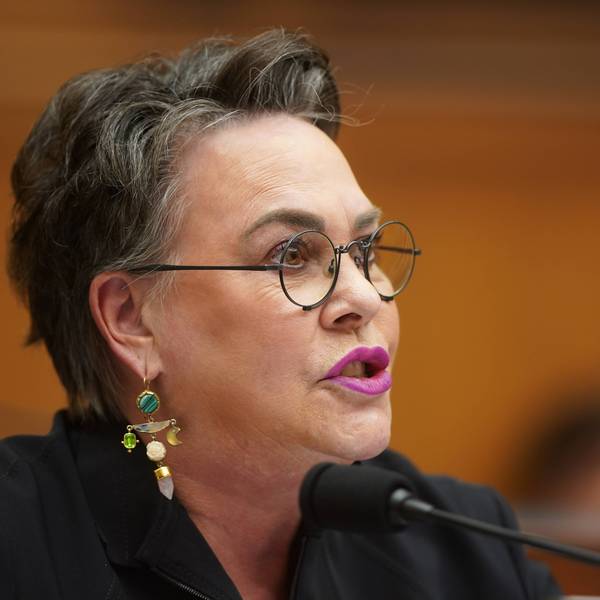Lawmakers are attempting to make it even easier for fossil fuel companies to bid on public land auctions without facing disapproval from climate advocates, a move that green groups say buckles to corporate interests.
Earlier this week, the U.S. House Committee on Natural Resources approved a bill that would require lease sales for offshore drilling to be held online rather than in person, as the Obama administration gears up to do the same with an onshore public land auction originally slated for a sell-off in Washington, D.C.
All this despite the fact that climate advocates have been imploring the White House to end such leases altogether to help curtail rising greenhouse gases and fulfill its pledges as mandated by the Paris agreement.
"New fossil fuel leasing is wrong for people and the planet. Moving lease sales online will only make it easier for fossil fuel companies to get away with turning our public lands and waters into energy sacrifice zones," said Marissa Knodel, climate change campaigner with Friends of the Earth.
The bill's sponsors, Reps. Garret Graves (R-La.) and Alan Lowenthal (D-Calif.), say the aim is to increase transparency and attract more bidders, which Graves claimed would ultimately benefit taxpayers with higher returns. In Graves' home state of Louisiana, hundreds of Gulf Coast residents descended on a public auction held in the New Orleans Superdome earlier this year calling for an end to lease sales and proclaiming the city would "no longer...be a sacrifice zone."
Morning Consult reports:
Online lease sales aren't a totally new idea. The Bureau of Land Management plans to conduct an online lease sale for onshore production this fall. The Bureau of Ocean Energy Management already does online sales for offshore wind leases.
Some states have also adopted online lease sales for onshore production. In Texas, which has adopted online lease sales for onshore production, there have been cases in which the highest bid is "tens of millions of dollars" greater than the second highest, said Jon Hrobsky, policy director for lobbying and law firm Brownstein Hyatt Farber Schreck LLP, at the hearing.
The decision follows several instances in which oil and gas auctions were disrupted by activists calling for the government to end new leases and keep fossil fuels in the ground.
In a statement released Thursday, Friends of the Earth charged that "Moving the auctions online serves one purpose: to make it easier for the fossil fuel industry to take control of our public lands, shielded from public scrutiny and input."
"Now the administration has a clear choice: take action in keeping with our international climate commitments or cater to the fossil fuel industry," the group said.
Similar criticisms were lobbed by organizations like the Center for Biological Diversity (CBD), the Science and Environmental Health Network, and the Louisiana Bucket Brigade, among others.
"This bill is about circumventing public scrutiny. It says a lot when the public is so disgusted with Big Oil that they have to retreat and hide," said Anne Rolfes, founding director of the Louisiana Bucket Brigade. "They can change the rules but not the facts: they are destroying our health and our planet, and we are here to stop them."
CBD's Taylor McKinnon added, "Moving fossil fuel auctions online still doesn't hide the dangerous disconnect between the administration's climate rhetoric and its fossil fuel leasing. The clock is ticking on the climate crisis, and each new lease makes a bad problem worse. It's time for the president to shut the federal carbon pollution spigot for good."



